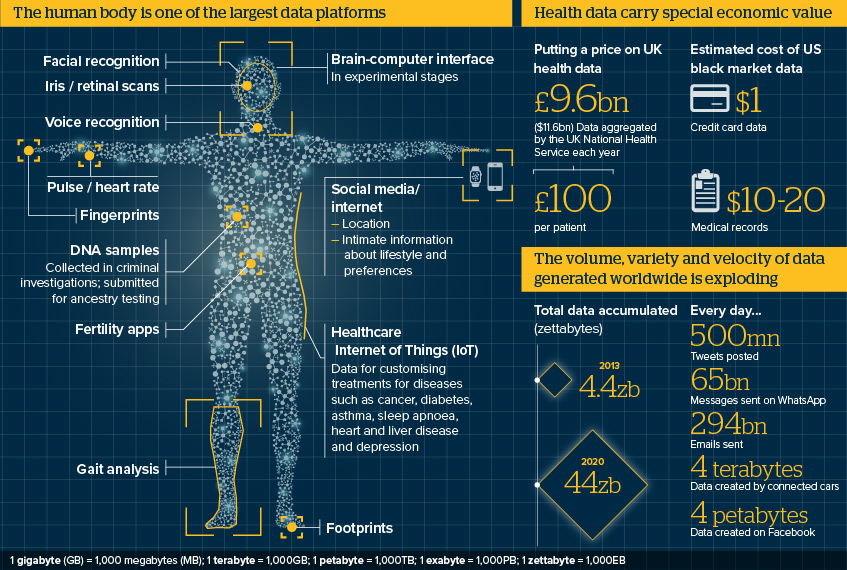Privacy and security policies lag biometric data use
People are submitting vast amounts of biometric data to governments and private firms, knowingly and unknowingly
Source: PwC, World Economic Forum, the Federal Bureau of Investigation, EY, WHO, Oxford Analytica
Outlook
The global data explosion is powering solutions to improve human health by facilitating cheaper, preventive and personalised medicine; enhancing community life by boosting law enforcement and efficient ‘smart city’ solutions; and creating economic opportunities by fostering new digital industries and global connectivity.
However, policies to give humans clarity and control over their data lag this explosion. The EU is the global trendsetter. Top emerging markets such as India, Indonesia and Brazil are replicating aspects of its General Data Protection Regulation. The US policy landscape will be fractured along state-federal lines, although bipartisan momentum for a federal data privacy law is building ahead of the 2020 presidential polls.
Impacts
- Awareness will rise of cybersecurity risks of connected devices, which can in the case of some health devices include fatal harm.
- Biometric data use by law enforcement is politically sensitive; even democracies can prioritise ‘national security’ over privacy.
- ‘Big tech’ is built on data monopolies; many large firms will support privacy restrictions that undercut their future competition.
- Emerging-market regulators will pursue data localisation to level the field for their domestic digital firms and for security purposes.
